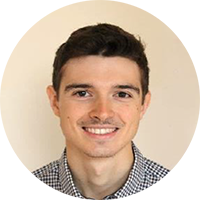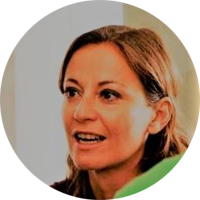Project partners
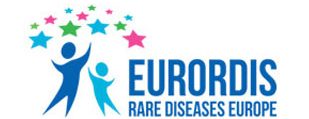
Non-profit alliance of rare disease patient organisations that work together to improve the lives of 30 million people living with a rare disease in Europe
 Yann Le Cam
Yann Le Cam
Yann Le Cam is a patient advocate who has dedicated over 30 years of professional and personal commitment to health and medical research NGOs in France, Europe and the United States in the fields of cancer, HIV/AIDS and rare diseases. Yann Le Cam was one of the founders of EURORDIS-Rare Diseases Europe in 1997 and has been the organisation’s Chief Executive Officer since 2000. Yann initiated Rare Diseases International (RDI) in 2009, for which he is an elected member of the Council and Chair of the RDI Advocacy Committee. He was a founding member of the NGO Committee for Rare Diseases (United Nations, New York) in 2014 and is its Vice-Chair. Yann is a Co-Chair of the Global Commission to End the Diagnostic Odyssey of Children with Rare Diseases since its launch in 2018. He is also a member of the World Economic Forum’s Health Stewards Board from 2020 and of its Global Precision Medicine Council since 2019. Yann was a frontline advocate for the adoption of European regulations that impact the lives of rare disease patients, including the EU regulations on orphan medicinal products (1999), paediatric use of medicines (2006), and advanced therapies (2007). He promoted the Commission Communication on Rare Diseases (2008), the Council Recommendation on Actions on Rare Diseases (2009) and the Directive on Cross-Border HealthCare (2011). From 2016 – 2019, Yann Le Cam served as a member of the European Medicines Agency’s (EMA) Management Board. Yann was vice chairman of the EU Committee of Experts on Rare Diseases (EUCERD) from 2011 to July 2013 and was a member of the former Commission Expert Group on Rare Diseases (2013-2016). He is a member and immediate past chair (2013-2017) of the Therapies Scientific Committee of the International Rare Diseases Research Consortium (IRDiRC).
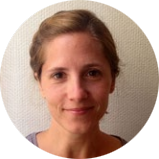 Anna Kole
Anna Kole
Anna Kole is a public health professional with more than a decade of experience in the field of rare diseases, both in the US and Europe. She first joined the EURORDIS team in 2009 to publish The Voice of 12,000 Patients and currently leads the Rare2030 project. She previously managed EURORDIS’ participation in projects and networks focused on patient registries, biobanks, clinical bioinformatics, and –omics in an effort to empower patients and their representatives as active participants in the research process including, RD-Connect, the International Rare Disease Research Consortium and the TREAT NMD Neuromuscular Network. During her tenures with Orphanet and the National Organization for Rare Disorders (NORD), Anna was responsible for a range of activities in the field: policymaking and analysis, patient education and registries. In her spare time, Anna organizes charity clothing sales to raise money for rare disease patient organisations. She holds a Master’s degree in Maternal and Child Health from the UNC Gillings School of Global Public Health.
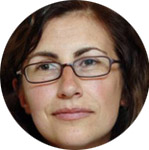 Valentina Bottarelli
Valentina Bottarelli
Valentina Bottarelli joined EURORDIS in 2007 as European Public Affairs Senior Advisor. She provides policy analysis and strategic advice on EU policies as well as funding opportunities from EU public institutions. She is also in charge of coordinating, on behalf of EURORDIS, activities aimed at fostering the development of National Plans on Rare Diseases in EU countries within the framework of the EUROPLAN project. Valentina has extensive experience in the area of EU policies and programmes. As well as managing European funded projects, she has worked as a consultant in public affairs and communications. She has also worked at the European Commission, Directorate External Affairs. Valentina holds a Master of Arts in European Political and Administrative Studies from the College of Europe in Bruges.
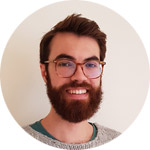 Kostas Aligiannis
Kostas Aligiannis
Kostas Aligiannis joined EURORDIS in January 2020 as Public Affairs Manager – EU & National Integrated Advocacy. On the Rare2030 project, Kostas helps organise the regional meetings that will explore the implementation of the identified scenarios in different countries/regions. Kostas is responsible for coordinating and empowering advocacy and outreach capabilities of national rare disease patient groups, notably National Alliances, by enhancing support to the advocacy activities of EURORDIS vis‐à‐vis EU Institutions. He ensures that the priorities and contributions of National Alliances feed into the planning and definition of advocacy activities, that feedback is regularly provided as well as guidance on the process to follow. Before joining EURORDIS, Kostas worked at a number of Brussels-based NGOs and patient organisations, with a focus mostly on the area of healthcare. Kostas studied European Studies at the University of Maastricht, and law at KU Leuven. At the moment he is pursuing a Masters in Public Health at the Free University of Brussels-VUB.
 Julien Delaye
Julien Delaye
Julien Delaye has joined EURORDIS in September 2019 and is now a Public Affair Assistant based in Brussels. His work within EURORDIS is now mainly focused on Rare2030, especially on the 2030 Young Citizen Conference. Prior to EURORDIS, Julien was a volunteer for Osteogenesis Imperfecta Federation Europe (OIFE) and gained his first rare disease-related experience in Copenhagen, Denmark, where he did a marketing internship in a pharmaceutical company. He holds two bachelor degrees, in marketing (Liège – Campus Guillemins) and in European Public Health (Maastricht University), and a master degree in Public Policy and Administration (Dublin – UCD). Throughout his studies, Julien focused his academic work and papers on rare diseases, and his master thesis investigates the notion of significant benefit in Europe.
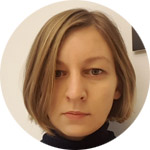 Katarzyna Radwan
Katarzyna Radwan
Katarzyna Radwan is a Team Assistant and Office Manager at EURORDIS based in Brussels. Her role is to provide administrative support to the Public Affairs team. She assists her colleagues in various tasks related to the Rare2030 project: administration and logistics, organization of various events and meetings, creating content for social media and newsletter, updating the database etc. She holds a Bachelor’s degree in Translation from Higher Institute of Translators and Interpreters of Brussels (ISTI) and a Master’s degree in Modern Languages and Letters from ULB University of Brussels. Prior to joining EURORDIS, she worked for 7 years as Assistant to the Team and Secretary to the Head of Unit in European Commission, in DG Health and Food Safety. She had also worked for many years as translator.

Knowledge base and information portal for rare diseases and orphan drugs
 Dr Ana Rath
Dr Ana Rath
Ana Rath is the Director of INSERM, US14 - Orphanet. Ana is a medical doctor, and coordinates the global Orphanet network and the production of the Orphanet nomenclature, ontology and database. She coordinates the EU RD-CODE project that aims to promote the improved codification of RD, she leads Pillar 2 of the European Joint Programme Co-Fund on RD, and a work package in the EU Solve-RD project. She has previously coordinated the RD-Action, an EU Joint Action bridging data and policies for RD, and coordinated the Scientific Secretariat of the International Rare Disease Research Consortium. Ana brings her experience and expertise in the rare disease field, in particular in the area of systematic literature reviews, to the Rare 2030 project, leading the INSERM team’s work in WP4. Ana is delighted to contribute Orphanet’s expertise and 15 years of experience in delivering literature reviews to the RD community via the OrphaNews newsletter to this project. She hopes that building on the past, we can help shape an inclusive future political scenario for RD that leaves no-one behind.
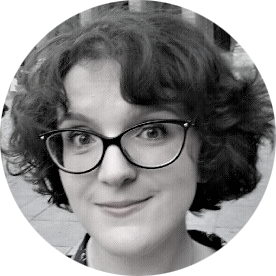 Charlotte Rodwell
Charlotte Rodwell
Charlotte Rodwell is Partnerships, Business Development and Strategic Communications Officer at Director of INSERM, US14 – Orphanet. She has a Master’s Degree in Modern History and Modern Languages and a University Diploma in Technology Transfer in Health and Medicine. Charlotte has 10 years’ experience in the field of rare diseases, in particular EU RD policy, having served for 6 years at the Scientific Secretariats of the EC RD Task Force, the European Union Committee of Experts on RD and the EC Expert Group on RD. During this time she delivered the annual report on the State of the Art of RD Activities in Europe. For the past 4 years she has led Orphanet’s partnerships and communications activities, in particular heading the OrphaNews team. She will support the literature review conducted by INSERM in WP4 of Rare 2030, a project with offers the unique opportunity to imagine a fairer and brighter future for people living with rare diseases.
Florent Simon
Florent recently joined INSERM, US14 – Orphanet, at the beginning of 2019 after having graduated from University College London (UCL) in European Social and Political Studies. He is in charge of producing the OrphaNews international newsletter and will produce part of the literature review for Rare 2030, in particular using the OrphaNews article database and 0from the Orphanet database. This is Florent’s first time working on rare diseases and the complexity of the issue as well as the project’s social and political aspect excites him most.
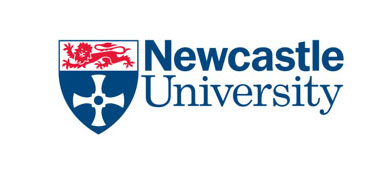
John Walton Muscular Dystrophy Research Center: translational research to bring diagnosis, care and therapy to people with neuromuscular disease
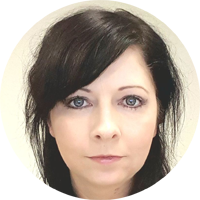
Victoria Hedley
Victoria Hedley is leading WP4 of Rare2030. This project presents a unique opportunity to unite experts from diverse backgrounds to establish the status quo of rare disease activities across Europe: this knowledge base will enable us to identify the ‘challenges of tomorrow’ and develop robust recommendations for policy-makers seeking to address these challenges.
As Rare Disease Policy Manager at Newcastle University’s Institute of Genetic Medicine, Victoria has experience and understanding of a wide range of topics across the rare disease ‘spectrum’. As Thematic Coordinator and later Policy Manager for the European Joint Action for Rare Diseases, RD-Action (2015-2018), she was responsible for setting strategic policy goals and delivering workshops, reports and recommendations. She contributed to several sets of EU-level Recommendations and led the Joint Action support for the conceptualisation and implementation of European Reference Networks (ERNs), developing guidance with the Networks, for the Networks on a broad range of topics. Victoria coordinates the online State of the Art of Rare Diseases Activities in Europe Resource, which is gathering information on the status quo to support the Rare2030 knowledge base.
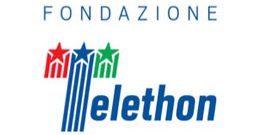
Non-profit organisation fostering research that leads to cures for rare genetic diseases

Lucia Monaco
My role in Rare 2030 regards the definition and execution of an evaluation strategy, to monitor the progress of project activities and the achievement of milestones, and to assess the project's results.
This activity is coherent with my current role at Fondazione Telethon, where I lead the Research Impact and Strategic Analysis unit.
I am/have been involved in several European projects and initiatives, such as RD-Connect, EuroBioBank, and the European Joint Program for Rare Diseases. I am representing Fondazione Telethon in the International Rare Diseases Research Consortium (IRDiRC); since January 2019, I am chairing the IRDiRC Consortium Assembly.
I have previously been Fondazione Telethon's Chief Scientific Officer for ten years, after a 20+ years' experience as a biomedical researcher.
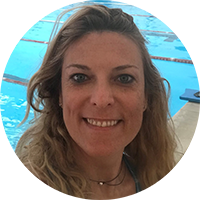
Silvia Pozzi
My role in RARE2030 regards the definition and execution of an evaluation strategy, to monitor the progress of project activities, the achievement of milestones and to assess the project’s results. These activities are in line with the role I play in the Research Impact and Strategic Analysis an Area aimed at supporting Fondazione Telethon in decision making and research investment prioritization. I am also participating on behalf of Telethon in the Europe PMC, an initiative aimed at making research outputs open and accessible to the scientific and general public. Along the same lines, I have also initiated a collaboration with the Office of Portfolio Analysis at the National Institutes of Health (NIH, Bethesda, US) that is developing new tools for portfolio analysis and to measure research impact. Prior to join Telethon, I acted with a similar role in the Research Governance Area of the Agenzia Sanitaria e Sociale Regionale (Regione Emilia-Romagna, Italy) and previously I was a researcher in Italy and in the US. I hold a BS in Biology, a PhD in Molecular medicine and a Master in International Healthcare Management, Economics and Policy (MIHMEP, from SDA Bocconi School of Management).

Research institute working in the field of policy design, analysis and impact assessment with a particular expertise in forward looking methods
Giovanna Giuffrè
Giovanna is with ISINNOVA since 2008 and partner there since 2010, Giovanna has consistently worked in the research and management of several IEE, FP7 and Horizon 2020 projects. Through forward-looking projects, Giovanna has gained experience in trends and policy analysis, workshop facilitation and redaction of policy recommendations. These projects include BOHEMIA – Future scenarios for Research and Innovation policies in Europe, FRESHER – Foresight and modelling for European Health policy and regulation, FLAGSHIP - Forward Looking analysis of grand societal challenges and innovative policies, PASHMINA - Paradigm Shift Modelling and Innovative approaches, URBACHINA, and PACT - Pathways for Carbon Transition. Previous experience has included working for networks of local authorities on European sustainable procurement projects (EUROCITIES and ICLEI) and for a network of Non-Governmental Organizations (Medlink - Mediterranean links) on a project aimed at enhancing NGO cooperation in the Mediterranean area. Giovanna holds a law degree from La Sapienza University in Rome, Italy and has a master’s in European Studies from the College of Europe, Warsaw.
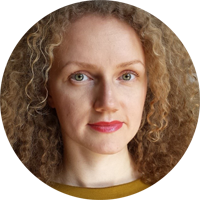
Svetlana Ivanova
With extensive experience working in policy-making and policy research, Svetlana joined the ISINNOVA Foresight and Scenarios team in 2019. Svetlana began collaborating on election campaigns in 2005 and over the next six years worked on projects in administrative reform and in communications for a consulting company in Moscow. Svetlana received a master's degree in Public Policy from the Central European University with a specialization in international politics. Focusing on research in public policy, she received a Swiss Government Excellence Scholarship for her research on unconventional gas development in the UK. Svetlana has in-depth knowledge of the policy-making process in Europe and in Russia and experience in qualitative and quantitative methods of analysis.
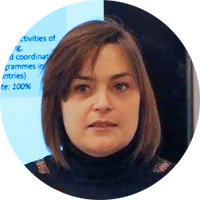
Loredana Marmora
Loredana (PMP®) holds a degree in Economics and International Trade and Stock Market (University of Salerno-Italy) and a master’s degree in European Projects – Community Advisor and Project Consultant (University of Brussels-Belgium). Since 2014 she is certified PMP® (Project Management Professional at Project Management Institute, Pennsylvania). With ISINNOVA since 2008 (partner since 2009), Loredana has relevant project management experience, notably accrued within FP6, FP7 and H2020 EU-funded research projects among others: STOP “Science and Technology in childhood Obesity Policy” (H2020 - 30 partners – 10.5M€); UrbaChina “Sustainable Urbanisation in China: Historical and Comparative Perspectives, Mega-trends towards 2050” (H2020 – 11 partners – 3.4 M€), I3U “Assessment of the Impact of the Innovation Union” (H2020 – 9 partners – 3 M€), PASHMINA “Paradigm Shift Modeling and Innovative Approaches” (FP7 – 11 partners - 3.3 M€), CIVITAS CATALIST “CIVITAS Transfer Action Leading to Innovation & Sustainable Transport” (FP6 - 24 partners – 4.3 M€;. Since 2014, external expert evaluator for the European Commission of the SME Instrument phase 1 and phase 2 proposals and of the FTI - Fast Track to Innovation programme. Loredana’s prior professional experiences include working as consultant in the Financial Subsidy Services at INEUM consulting – France (2006-2008). Beside Italian, she speaks fluently English and French.
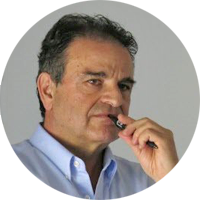
Andrea Ricci
ISINNOVA Vice President, Andrea joined ISINNOVA in 1981. He received his engineering degree at Ecole Centrale (Paris, France) in 1977. His key qualifications include sustainability policy analysis and socio-economic impact assessment, as well as scenarios and forward-looking analysis in energy, transport, and urban development. He participated in and coordinated many EU RTD projects, including EFONET (FP7); NEEDS (FP6), FLAGSHIP, PASHMINA and URBACHINA. He served as evaluator of EU RTD proposals within FP4, FP5, FP6 and FP7, and he also contributed to the ex-post evaluation of several EU RTD Programmes (International Cooperation, Environment, Bioeconomy). Counting more than 100 international publications, he is also the author of a number of EU reports (DG RTD) (“Assessing the Social and Environmental Impacts of European Research”, “The overall socio-economic dimension of community research in the fifth European framework programme”). He has recently served as the Rapporteur of the EC Working Group “Global Europe 2030 – 2050”. Fluent in Italian, English and French, he is also proficient in Spanish.

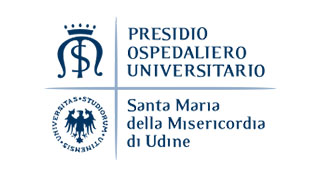
European Reference Network for Hereditary Metabolic Disorders (University Hospital of Udine)
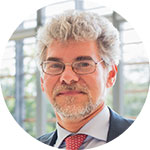
Maurizio Scarpa, MD PhD
Maurizio Scarpa, MD PhD, paediatrician, is the Director of the Regional Coordinating Center for Rare Diseases at the Udine University Hospital, Udine, Italy. He is Professor of Paediatrics at the Dept. for the Woman and Child Health, University of Padova, Italy, and the Co-Founder of the Brains For Brain Foundation, together with Prof. David Begley, Kings College of London, London, UK. Prof. Scarpa has extensive expertise as a basic scientist in genetics and biotechnology, as well as a clinician in the diagnosis and treatment of paediatric rare disorders, and in particular, neurometabolic diseases. He is especially interested in developing innovative health approaches for the diagnosis and the treatment of metabolic inherited diseases, to this aim he is also collaborating with the major Biotech Companies as external independent expert.
Prof. Scarpa is the Coordinator of the European Reference Network for Hereditary Metabolic Diseases, MetabERN, formed by 69 HCPs in 18 EU countries and treating 43000 metabolic patients, and he is the Past Chair of the ERN Coordinators Working Group. His teaching and educational interests include, among others, the development of a MD/PhD European Program on Rare Diseases inside the European Working Group of the ERN Coordinators.
The Rare2030 project is of major interest for Prof. Scarpa due to the huge project´s potential to drive new policies answering the huge medical and social needs which characterize and limit the quality of life of patients and their families. The coordinated participation of the 24 ERNs, ensured through Prof. Scarpa´s participation to the project, will be of great value for the project and for the validation of the policies in the real life of patients affected by rare diseases.
![]()
 European Reference Network on Rare Bone Disorders (Istituto Ortopedico Rizzoli)
European Reference Network on Rare Bone Disorders (Istituto Ortopedico Rizzoli)
 Centre for Health Economics and Policy Innovation: assessing impacts of public policies on chronic diseases and other areas of health
Centre for Health Economics and Policy Innovation: assessing impacts of public policies on chronic diseases and other areas of health
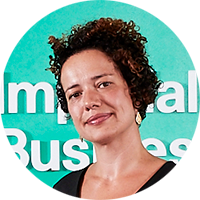 Marisa Miraldo
Marisa Miraldo
Marisa is Associate Professor in Health Economics and has joined the Imperial College Business School in 2008. Marisa has a track record in leading multidisciplinary research in health economics and policy and collaboration with policy makers. Her expertise is on the economics and policy of healthcare innovation, and the impact of policy and regulation on healthcare providers and pharmaceutical firms’ performance and strategies.
She is a fellow of Imperial College Data Science Institute and currently leads the Health Research stream at the Data Analytics Centre, as well as a Health Foundation funded research program on the determinants of the adoption of innovation for chronic conditions such as cancer, and cardiovascular disease.
She part of the strategic board of the Nutrition and Food Network Strategy Group and the Vaccines strategy group at Imperial College London.
She will be leading the following analyses 1) Map the global therapeutic R&D activity and market launches across the different rare disease areas over the years; 2) Assess investment in R&D for orphan drugs within their whole R&D portfolios and identify factors impacting such decisions; 3) measure success rates for innovation of orphan drugs and assess the key determinants of successful innovation and market launch of orphan drugs.
Prof. Franco Sassi
Professor Franco Sassi graduated with a degree in economics and a doctorate in health economics from the University of London in 2000. He is currently Chair in International Health Policy and Economics and Director of the Centre for Health Economics & Policy Innovation at Imperial College Business School, and a Senior Health Economist at the OECD where he led the Organization’s Economics of Prevention program until 2016. He has previously worked as a Senior Lecturer in Health Policy in the Department of Social Policy at the London School of Economics and Political Science (LSE), and held adjunct and visiting positions at a number of universities in the United States, including the University of California at Berkeley, Harvard University, the University of California at San Francisco, and Duke University — as well as at the at the Université de Montréal in Canada and at the Università Cattolica del Sacro Cuore in Rome. Professor Sassi's research interests focus on economic analysis of health services, the economics of chronic disease prevention and measuring inequalities in access to healthcare. He is Principal Investigator and Project Coordinator on the European Commission funded Horizon 2020 project Science & Technology in childhood Obesity Policy (STOP). He is the lead author of Obesity and the Economics of Prevention: Fit not Fat (OECD and Edward Elgar, 2010), editor and author of Tackling Harmful Use: Economics and public health policy (OECD, 2015) and Promoting Health, preventing disease: The economic case (OUP, 2015); and author of a large number of publications on the economics of chronic disease prevention. He was awarded a 2000–2001 Commonwealth Fund Harkness Fellowship in Health Care Policy. As part of the RARE2030 consortium, Professor Sassi and his team will lead on the evaluation of the development and market launch of orphan drugs. They will map the global R&D pipeline, measure the successful market launch of orphan drugs, and identify potential gap areas where novel incentive schemes may be needed to stimulate investment in the development of innovation in rare diseases.
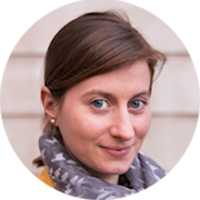 Dr Charlotte Vrinten
Dr Charlotte Vrinten
Charlotte is a Research Associate on the Rare2030 project in the Centre for Health Economics and Policy Innovation at Imperial College London, where she investigates the R&D pipeline and market launch of orphan drugs.
Charlotte completed her PhD on n-of-one trials for rare diseases at VU University in Amsterdam, using rare neuromuscular diseases as a case study. Her PhD examined the contribution that n-of-one trials can make to the creation of an evidence base for treatments for patients with rare diseases. In addition to conducting two clinical trials using the n-of-one methodology, she also examined the acceptability of evidence from series of n-of-one trials to healthcare regulators and HTA agencies, such as the Dutch National Health Care Institute and the Medicines Evaluation Board.
Before joining Imperial College, Charlotte worked as a Research Psychologist at University College London. There, she examined the prevalence and sociodemographic distribution of cancer fear in the general population, and its association with uptake of cancer screening. Charlotte has a background in Medicine, Psychology, and Philosophy.

